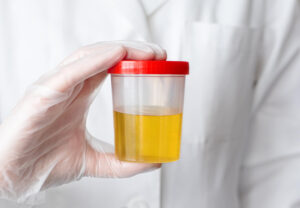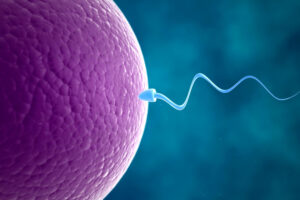Infertility is often seen as a woman’s health issue, but in reality, male infertility accounts for nearly 40–50% of infertility cases worldwide. One of the most common yet often overlooked causes of male infertility is a condition called varicocele.
If you and your partner have been trying to conceive without success, you may be wondering: Can varicocele cause infertility? The answer is yes—it can play a significant role in reducing male fertility.
At The Boon IVF, Hyderabad, we see many couples where male infertility is linked to varicocele. In this article, we’ll explain what a varicocele is, how it affects fertility, treatment options, and how advanced IVF techniques can still make parenthood possible.
What is a Varicocele?
Varicocele is a medical condition in which the veins inside the scrotum (the pouch that holds the testicles) become enlarged. Think of it as varicose veins in the legs, but located around the testicles.
These veins, called the pampiniform plexus, are responsible for draining blood from the testicles. When they become enlarged, blood flow slows down, resulting in increased heat and oxidative stress in the surrounding testicles.
This seemingly small problem can have a significant impact on male fertility because sperm production and quality are susceptible to temperature and circulation.
How Common is a Varicocele?
- Varicocele affects about 15% of all men worldwide.
- Among men diagnosed with infertility, up to 40% have varicocele.
- It usually appears during puberty, but many men don’t notice it until adulthood.
While some men with varicocele have no fertility problems, others experience significant sperm-related issues that make conception difficult.
Symptoms of Varicocele
Many men with varicocele don’t have apparent symptoms, which is why it often goes undiagnosed until fertility testing. However, possible symptoms include:
- Dull, aching pain in the scrotum, especially after standing or physical activity
- Heaviness or discomfort in the testicles
- Visible or palpable enlarged veins, sometimes described as a “bag of worms”
- Shrinkage (atrophy) of the affected testicle
- Difficulty conceiving despite regular, unprotected intercourse
If you notice any of these signs, it’s essential to consult a fertility specialist.
Can Varicocele Cause Infertility?
Yes, varicocele can cause infertility in men, mainly by affecting sperm health and hormone balance. Let’s see how:
1. Increased Scrotal Temperature
The testicles need to be slightly cooler than the body’s core temperature for healthy sperm production. Varicocele raises scrotal temperature, which can:
- Reduce sperm production (oligospermia)
- Damage sperm motility (movement)
- Affect sperm morphology (shape)
2. Oxidative Stress
Poor blood circulation increases reactive oxygen species (ROS), which can damage sperm DNA, potentially affecting fertility. DNA fragmentation reduces the chances of successful fertilization and healthy embryo development.
3. Hormonal Imbalance
Varicocele can impair testosterone production, which affects libido, sperm development, and overall fertility.

4. Sperm Quality Issues
Men with varicocele often show:
- Lower sperm counts
- Reduced motility (slower-moving sperm)
- Poor morphology (abnormal shape)
How is Varicocele Diagnosed?
At The Boon IVF, we use a combination of tests to confirm varicocele:
- Physical Examination – A fertility specialist checks for enlarged scrotal veins.
- Scrotal Ultrasound – Confirms the size and severity of varicocele.
- Semen Analysis – Evaluates sperm count, motility, and morphology.
- Hormone Tests – Measures testosterone and other reproductive hormones if required.
Varicocele and Male Fertility: Research Insights
- Studies show that varicocele is present in up to 80% of men with secondary infertility (men who previously fathered a child but are now unable to conceive again).
- Varicocele repair can improve sperm quality in 60–80% of men.
- Pregnancy rates improve significantly after treatment, either naturally or with IVF support.
This makes timely diagnosis and treatment extremely important.
Treatment Options for Varicocele
Treatment depends on the severity of varicocele, fertility goals, and overall health.
1. Lifestyle Modifications
- Wearing supportive underwear
- Avoiding excessive heat (saunas, hot tubs, laptops on lap)
- Limiting strenuous activity and heavy lifting
- Maintaining a healthy diet and avoiding smoking/alcohol
While lifestyle changes alone may not “cure” varicocele, they can reduce discomfort and improve sperm health.
2. Surgical Treatments
a) Varicocelectomy
- The most common surgery for a varicocele is.
- Enlarged veins are tied off to redirect blood flow.
- It can be performed through open surgery, laparoscopy, or microsurgery.
b) Percutaneous Embolisation
- A minimally invasive procedure where a radiologist blocks blood flow to the affected veins using coils or chemicals.
Success Rate: Both treatments are effective, but microsurgical varicocelectomy is often considered the gold standard.

3. Assisted Reproductive Techniques (ART)
If varicocele treatment does not improve fertility or time is a concern, couples can benefit from ART such as:
- IUI (Intrauterine Insemination) – Suitable for mild sperm problems.
- IVF (In-Vitro Fertilisation) – Eggs are fertilized with sperm outside the body.
- ICSI (Intracytoplasmic Sperm Injection) – A single healthy sperm is injected directly into the egg, overcoming severe sperm issues.
At The Boon IVF, we specialize in IVF with ICSI, which gives couples with male infertility (including varicocele-related infertility) a high chance of success.
Varicocele and IVF: What You Should Know
Many couples ask: “If my husband has a varicocele, do we need surgery before IVF?”
The answer depends on the severity:
- Mild Varicocele with Good Sperm Quality – IVF/ICSI may be enough without surgery.
- Moderate to Severe Varicocele with Poor Sperm Quality – Surgery may improve sperm parameters before ART.
- Urgency of Parenthood – If a couple wants to conceive quickly, IVF + ICSI can bypass varicocele issues without waiting for surgical recovery.
At The Boon IVF, our fertility specialists evaluate each case individually and recommend the most effective path to parenthood.
Living with Varicocele: Myths vs. Facts
Myth 1: Varicocele always causes infertility.
Fact: Not all men with varicocele are infertile. Some may still father children naturally.
Myth 2: Surgery guarantees fertility.
Fact: Surgery can improve sperm quality, but it may not always restore fertility completely. ART may still be needed.
Myth 3: Varicocele is rare.
Fact: It’s very common, affecting 15% of men and 40% of men with infertility.
When Should You See a Doctor?
Consult a fertility specialist if:
- You and your partner have been trying to conceive for 6–12 months without success.
- You notice pain, swelling, or enlarged veins in the scrotum.
- You experience testicular shrinkage or discomfort.
- You have abnormal semen analysis results.
The Boon IVF: Male Infertility Care You Can Trust
At The Boon IVF, Hyderabad, we understand the challenges couples face when infertility is linked to male factors like varicocele. Here’s how we support you:
- Advanced Diagnostics – State-of-the-art semen analysis and scrotal ultrasound.
- Expert Urologists & Fertility Specialists – A team approach to male infertility.
- Tailored Treatments – From varicocele surgery to IVF with ICSI, based on your unique needs.
- Compassionate Care – We support you emotionally as well as medically throughout your journey.
Final Thoughts
So, can a varicocele cause infertility?
Yes, it can—but it doesn’t have to stop you from becoming a parent. With timely diagnosis, treatment, and advanced fertility options like IVF and ICSI, most men with varicocele can achieve their dream of fatherhood.
At The Boon IVF, Hyderabad, we combine compassionate care with advanced fertility technology to help couples overcome challenges like varicocele-related infertility.
Your journey to parenthood is precious—let us guide you with expertise, safety, and hope.


